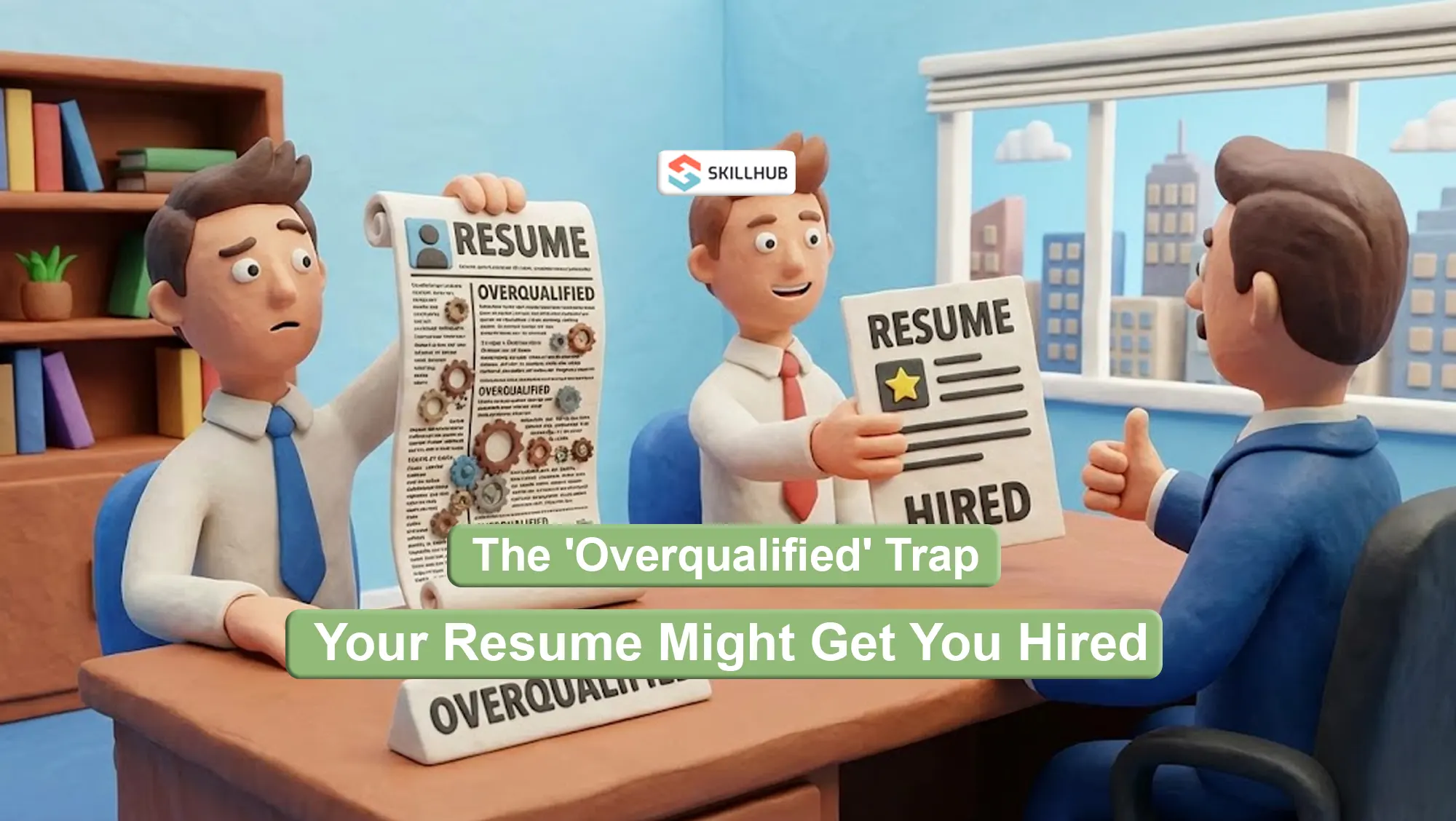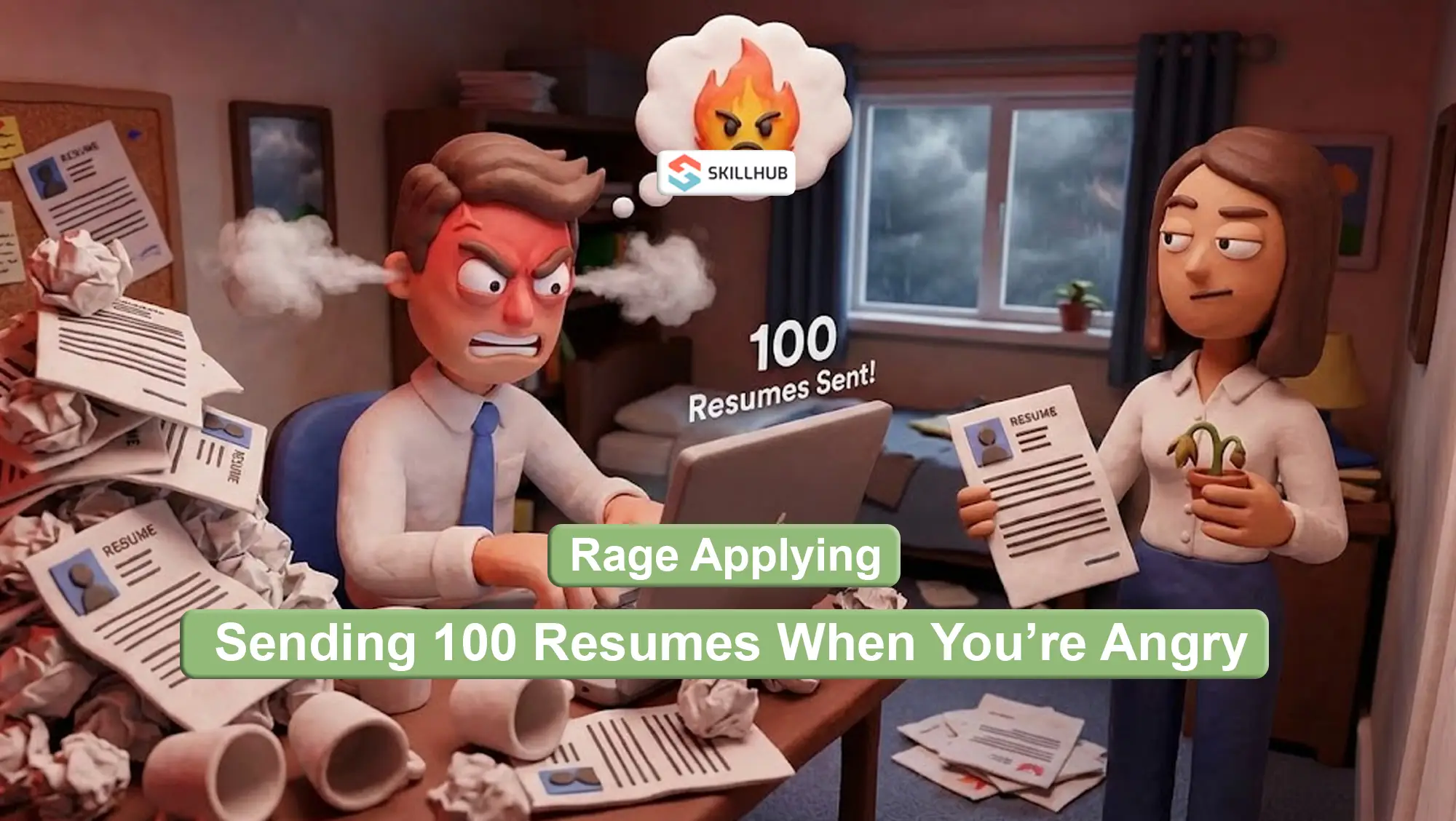How to Become a Successful Copy Editor

Are you looking for an answer to the question of how to become copy editor? You’ve come to the right place, then. We’ve surveyed many successful industry professionals for realistic and helpful career insights. So we can confidently say that we know what it takes to build a thriving career as a copy editor.
Here are some key things you need to know to become a professional copy editor and land the best copy editor jobs. You’ll learn what educational background is expected, what the key responsibilities of a copy editor are, how to present yourself to join the writing business, how to write a copy editor resume that will land an interview at your dream employer and more.
What Is a Copy Editor?
Are you wondering, “what is a copy editor?” That’s a good starting point for a writing career. Simply put, a copy editor edits copy, including any written content or do copywriting, from online articles to promotional materials for businesses to company emails, and everything in between. Basically, a copy editor is an editor who works with shorter-form content (say, blog posts instead of books).
Copy editors have a lot of responsibilities. But they all boil down to ensuring that the written content their employers post or distribute is flawless. This means that a professional copy editor is in charge of correcting all kinds of errors (grammatical, syntax, word choice, you name it). They receive a text from a writer and are supposed to polish it to perfection. They are also responsible for tailoring the content to their employer’s style and tone of voice.
What Does a Copy Editor Do?
A copy editor does some of the things that proofreaders typically do. This includes correcting typos and minor errors, making sure that spacing is fine, breaking down the text into smaller paragraphs for the reader’s convenience, capitalizing the headings correctly, and so on. Those aren’t complicated tasks and don’t require much qualification or work experience beyond outstanding grammar skills and attention to detail.
But that’s only a fraction of what an editor does. If an editor works for a larger company or a media outlet, they don’t do those things because there are proofreaders for that. The main answer to the question of “what does a copy editor do?” isn’t about typoes or spacing. Instead, it’s about ensuring the overall coherence of the text, uniformity of style, and an easy flow of ideas.
A skilled copy editor is someone who can take poorly written text and turn it into an outstanding piece of copy. That’s what any employer or recruiter is looking for. So don’t be surprised when you hear that a copy editing job you’re applying for includes a test task. It’s a regular part of applying for a job for all copy editors. Their skills matter beyond education or work background.
The Average Salary for a Copy Editor
How much a copy editor makes depends on many factors, including where they live, their rate, how many hours a week they work, and more. But, on average, the copy editor salary is about $63,000 a year, and the standard hourly rate is $30. It’s not one of the highest-paid jobs, but the income is decent. And thorough company research will help you find an organization that best compensates for their copy editors’ work.
How to Get a Job as a Copy Editor
There are a few ways you can work as a copy editor. The easiest (but necessarily the best) is registering on one of the popular freelancing platforms and finding copy editor jobs there. Upwork is the biggest and the safest one. It’s also considered the most expensive, so it’s the best choice if you’d like a higher income. But Fiverr and PeoplePerHour are also lovely alternatives.
Also, you can submit a job application to one of the writing agencies akin to Skillhub. They offer remote copy editor jobs to skilled professionals across the globe. Remember that writing agencies tend to have a more serious vetting process than freelancing platforms. You need relevant education, a diverse portfolio, and impressive career accomplishments to be a competitive applicant.
Finally, if you value job security above everything and are looking for stable employment, you can always become a staff copy editor at a marketing company of your choice. All of them are after skilled and experienced copy editors and are willing to review applications even when they don’t have job openings. So contacting a recruiter or hiring manager of a company you’d like to work at is never a bad idea.
Study English Literature, English, and All Related Topics
A professional copy editor can definitely do without a degree in English. But statistically, they do much better with one. A copy editor needs to have a deep knowledge of the language that goes way beyond being able to talk or write in it. A copy editor certification will teach you how to write and edit engaging texts and catchy headings. But it won’t make you feel the tiniest nuances of style the way a degree will.
One thing determining what copy editor salary you can count on is what genres you’re comfortable with. If you can only edit blog posts and social media posts on everyday topics, you’re at a disadvantage. An employer who’d like their copy editor to also work with academic articles, scientific texts, and other “complex” content will likely find a more relevant person instead of you.
So if you’d like to be competitive for any copy editor position, no matter what it entails, a degree in English, English literature or at least Communications is a must. It’ll look good on your education resume section, even if it takes an extra three years of your life and a few thousand dollars. Copy editing is one of those industries where formal education is an excellent way to invest in your career.
Get a Degree or a Copy Editing Certificate
But if you’d like to skip college (or already have a degree in something else), you can still build a successful career as a copy editor even without a relevant degree. A copy editor certification is a good alternative. Many esteemed universities offer editing and copy-editing courses these days. The knowledge and skills you’ll get there can’t compare to a full degree, but they’re very hands-on and helpful.
You can receive a copy editor certification in just a few months. Pay attention to the curriculum when choosing the course to match the career you envision for yourself. University of Chicago, Emerson College, and UCSD all have affordable programs you can complete to get certified without spending too much time or money. The duration of these programs varies between six months and two years, and the prices start at less than $2,000.
Alternatively, you can choose a copy editing course from a professional organization that certifies editors and copy editors, for example, the American Copy Editors Society or the Publishing Training Center. Such programs are even cheaper and typically more flexible than those offered by universities.
Study Up on Editing Style Guides
If you get a degree or a professional certification (or, ideally, both), you should know all the style guides an editor needs. The most common ones are the Associated Press (AP) Stylebook and the Chicago Manual of Style. So these two are the bare minimum every copy editor needs to be comfortable with, even if they’re just starting their career.
But the best copy editor is familiar with style guides beyond the basics. Which of them you need depends on the industry you’d like to work in and the content you’ll edit. For example, suppose you end up working with many academic publications. In that case, you’ll also need to learn the Publication Manual of the American Psychological Association (APA) and the Modern Language Association (MLA) Handbook, among others.
Where you live, or, more accurately, where most of your audience lives, matters. For example, if you’re editing content text for British readers, you’ll likely need to know the New Oxford Style Manual. But a copy editor with a predominantly American readership doesn’t need it. The best approach is to learn the two most common style guides (AP and Chicago) and add them to the list as your career progresses.
Explore Different Specialities
It’s not always easy to define copy editor jobs because of how different copy editors’ tasks may look depending on their professional interests and the industries they are working in. What an academic copy editor does has very little in common with the job of someone in charge of editing social media posts for a business. A copy editor of published promotional materials has distinct professional responsibilities as well. The list goes on and on.
So one of the most critical choices you’ll need to make when planning your career as a copy editor is what industry and types of content you’d like to work with. If you struggle with choice overload, you can always hire a career advice expert to learn what paths are open to you and what career resources you’ll need to succeed in them.
You’ll also need to decide if you’d prefer to work as a staff copy editing professional or a freelance copy editor. The latter will give you more flexibility but less job security. And the jury is still out on which of the two is better for a healthy work-life balance. The best approach is to try both to decide whether you’d like to be employed at a specific company or work as a freelancer.
Build a Portfolio as a Freelance Copy Editor
No matter how stellar your education is, a copy editor can hardly hope to get hired without a portfolio. You might be after remote copy editor jobs, freelance gigs, or a nine-to-five office job at a marketing department—it doesn’t matter. When you apply for a copy editing position, the first thing a hiring manager will look at after scan-reading your resume is your portfolio.
The work samples you put on your portfolio should match the job description of the position you’re applying for. The same is true in freelancing. If the client is looking for someone to edit content for their healthcare website, make sure that there are at least a couple of healthcare-related texts among those you send as samples. If your prospective boss is looking for a social media editor, include anything SMM-related you’ve done.
A helpful tip that most successful copy editors share is to build as diverse of a portfolio as you possibly can. The more content types, industries, and topics are represented in your portfolio, the more open job opportunities. Diversifying your portfolio will help you stand out among all the job seekers for copy editor positions.
Build a Stunning Resume
A copy editor resume may be secondary to the portfolio, yet it still matters. Some of the best employers are using recruiting firms for talent acquisition. This means that the person reading your job application might have zero knowledge of copy editing. When that’s the case, your resume determines your job search's success.
If you don’t have much experience in resume writing, it’s always a good idea to get professional help. Professional resume writers know the industry trends and can ensure that your resume looks like a perfect match for the position you’re interested in. Hiring one is a sure way to impress recruiters and get more interviews.
Also, if you’ve never heard about Applicant Tracking Software (ATS), a professional resume writer is a must for you. Unless you have a bot-beating resume, your potential employer won’t even see your job application. Investing in resume writing services is the best way to avoid this. The price you’ll pay for them is nothing, considering how massively they’ll affect your job searching prospects.
Present Yourself
Finally, consider writing a cover letter for every position you’re applying for, even if it’s not required. A cover letter is your chance to describe your career achievements and define copy editor job responsibilities (based on the job description). Show the recruiter or potential employer that your understanding of the job matches the expectations.
Once again, if you struggle with cover letters and don’t know how to highlight your career accomplishments in the best light, consider hiring a professional. A well-written cover letter is guaranteed to get more interviews. It can make any copy editor resume look even better.
Key Takeaways
A copy editor is a fantastic job for everyone who enjoys the flexibility and likes to have control over how much they work and how much money they make. These are the things that anyone with a copy editor freelance job appreciates. But corporate job opportunities are also open to copy editors if that’s something you prefer.
Although a relevant college degree can help a copy editor’s career prospects, you can succeed without it. Get certified, build a diverse portfolio, and hire a professional to help you with your resume and cover letters—and you’re all set. Good luck!
%20(1).png)



%20(1).webp)